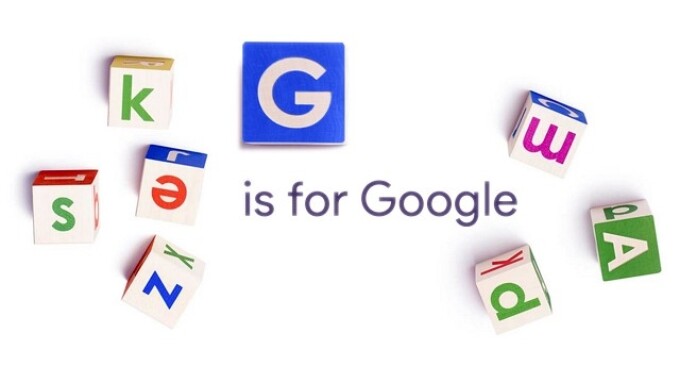LOS ANGELES — You’re never too old or too big to change, and this goes for the corporate world as well, as evidenced by today’s announcement of Google’s new name — Alphabet.
“G is for Google,” cofounder Larry Page began in his missive discussing the profound rebranding of one of the world’s most well known companies — or string of well known companies — as it has become.
Page reminisced about Google’s early days, recalling the founders’ letter he wrote 11 years ago with cofounder Sergey Brin, which noted that “Google is not a conventional company. We do not intend to become one [and we will make] smaller bets in areas that might seem very speculative or even strange when compared to our current businesses.”
“From the start, we’ve always strived to do more, and to do important and meaningful things with the resources we have,” Page explained in his rebranding announcement. “We did a lot of things that seemed crazy at the time.”
Some of those crazy things, such as Google Maps, YouTube, Chrome, and Android, now have in excess of a billion users — and the company’s product portfolio continues to grow, embracing a range of forward looking technologies.
Being on the bleeding edge is where Google belongs, as part of its corporate culture, but changes can be unsettling to individuals and organizations alike.
“We’ve long believed that over time companies tend to get comfortable doing the same thing, just making incremental changes. But in the technology industry, where revolutionary ideas drive the next big growth areas, you need to be a bit uncomfortable to stay relevant,” Page says. “Our company is operating well today, but we think we can make it cleaner and more accountable.”
One major step in this evolution is the establishment of the new parent company, Alphabet, which Page will run as CEO, with Brin serving as President. This move allows Google to focus on its search and other Internet products, while moving its other interests, such as its Life Sciences and its longevity initiatives; the X lab incubator that supports efforts including the Wing drone delivery effort; and its investment arms, Ventures and Capital, under the Alphabet umbrella instead.
“Fundamentally, we believe this allows us more management scale,” Page says. “We can run things independently that aren’t very related.”
Page explains that Alphabet is about businesses prospering through leadership and independence, with a strong CEO running each business. As part of this revamp, Sundar Pichai was appointed as CEO of Google.
The company is also rolling out significant financial changes, including the listing of Google financials separately from other Alphabet businesses, and replacing Google Inc. with Alphabet Inc. as the publicly-traded entity. Page says all shares of Google will convert into the same number of shares of Alphabet, with Google becoming a wholly-owned subsidiary of Alphabet. The two classes of shares will continue to trade on NASDAQ as GOOGL and GOOG.
As for what the firm hopes to accomplish, Page lists a number of goals, including getting more ambitious things done while taking the long-term view; empowering entrepreneurs and companies to flourish and to invest based on the scale of these opportunities; while improving transparency and oversight, making Google even better through greater focus.
“For Sergey and me this is a very exciting new chapter in the life of Google — the birth of Alphabet,” Page explains. “We liked the name Alphabet because it means a collection of letters that represent language, one of humanity’s most important innovations, and is the core of how we index with Google search!”
“We also like that it means alpha-bet (Alpha is investment return above benchmark), which we strive for,” Page concludes, adding that “We are not intending for this to be a big consumer brand with related products — the whole point is that Alphabet companies should have independence and develop their own brands.”
Worthy of note to domainers and Internet marketers, Alphabet’s URL is abc.xyz — embracing one of the new generations of top-level domains.
While it’s too early to tell what (if any) impact that Google’s restructuring will have on the adult entertainment industry, the leadership example the company shows by tackling such a huge shift in its corporate foundations may inspire veteran adult brands to take a ground-up look at their businesses and brands to see where beneficial changes could be made.






